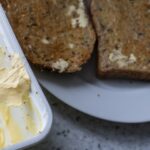Foods To Avoid After Gallbladder Removal are crucial for managing digestive health and minimizing discomfort, and FOODS.EDU.VN is here to help. By focusing on easily digestible options and avoiding problematic foods, you can enhance recovery and prevent digestive issues. This guide offers expert insights into dietary adjustments post-cholecystectomy, covering everything from immediate post-op nutrition to long-term dietary strategies, ensuring a smoother transition to a healthier, happier you. Dive in to discover foods to limit, including high-fat items, processed meals, and even some healthy choices that might cause issues, plus learn about beneficial alternatives and lifestyle tweaks that ease digestion.
1. Understanding Gallbladder Removal and Its Effects
The gallbladder, a small organ located beneath the liver, plays a vital role in digestion. It stores bile, a fluid produced by the liver that aids in breaking down fats. When you eat fatty foods, the gallbladder releases bile into the small intestine to help with digestion. However, various conditions like gallstones can lead to gallbladder dysfunction, often requiring surgical removal, a procedure known as cholecystectomy.
1.1. Why Gallbladder Removal is Necessary
Gallbladder removal is typically recommended for individuals suffering from:
- Gallstones: These hard deposits can cause severe pain, inflammation, and block the flow of bile.
- Cholecystitis: Inflammation of the gallbladder, often caused by gallstones.
- Biliary dyskinesia: A condition where the gallbladder doesn’t empty correctly.
- Pancreatitis: Inflammation of the pancreas, which can be triggered by gallstones blocking the bile duct.
1.2. Digestive Changes After Cholecystectomy
After gallbladder removal, the liver continues to produce bile, but it no longer has a storage reservoir. This means bile flows directly into the small intestine continuously, rather than being released in concentrated amounts when needed. This change can lead to several digestive issues:
- Diarrhea: The most common side effect, as the continuous flow of bile can have a laxative effect.
- Bloating and Gas: Undigested fats can ferment in the colon, causing gas and bloating.
- Fat Malabsorption: Difficulty absorbing fats can lead to nutrient deficiencies and further digestive discomfort.
- Changes in Bowel Movements: Increased frequency or urgency of bowel movements.
1.3. Adapting to Life Without a Gallbladder
Adjusting to life without a gallbladder involves making dietary and lifestyle changes to manage these digestive issues. While some people experience minimal problems, others may need to make significant adjustments to their diet. foods.edu.vn provides comprehensive resources and support to help you navigate these changes effectively.
